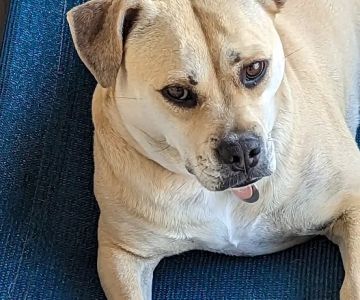How to Become a Livestock Veterinarian: A Step-by-Step Guide
As a passionate animal lover, you may have considered a career in veterinary medicine. But have you ever wondered how to become a livestock veterinarian? In this article, I’ll walk you through the essential steps and details of this rewarding career path, from education to professional opportunities. Whether you dream of working with cows, pigs, or sheep, I’ll guide you on the path to becoming a veterinarian who specializes in livestock care.
1. Understanding the Role of a Livestock Veterinarian
Before diving into the process of becoming a livestock veterinarian, it's important to understand what the job entails. Livestock veterinarians play a crucial role in ensuring the health and well-being of farm animals. They diagnose and treat a variety of animal diseases, conduct health inspections, and work closely with farmers to maintain the overall health of herds and flocks. Their responsibilities are vital for maintaining a healthy food supply, as livestock are integral to the agricultural industry.
2. The Education Pathway: Starting with a Strong Foundation
To pursue a career as a livestock veterinarian, you'll first need to complete the necessary educational steps. Here's a breakdown of the journey:
- Step 1: Obtain a Bachelor's Degree - A bachelor's degree in animal science, biology, or a related field is the first step. During your undergraduate years, you'll take courses in biology, chemistry, physics, and animal biology to build a solid foundation for veterinary school.
- Step 2: Apply to Veterinary School - After earning your undergraduate degree, you'll need to apply to a veterinary school. Gaining admission to a veterinary program is highly competitive, so make sure your academic performance is strong, and you have experience working with animals.
- Step 3: Complete Veterinary School - Veterinary school typically takes four years to complete. During this time, you'll study veterinary medicine, including anatomy, pharmacology, surgery, and pathology. In addition to classroom education, you'll gain hands-on experience working with animals in clinics and farms.
- Step 4: Obtain a Veterinary License - After completing veterinary school, you must pass the North American Veterinary Licensing Exam (NAVLE) to become licensed to practice as a veterinarian in the U.S.
3. Specializing in Livestock Care
Once you've completed veterinary school and earned your license, you'll be ready to specialize in livestock care. However, specialization often requires additional training, such as:
- Internships and Residencies - Some aspiring livestock veterinarians choose to complete internships or residencies to gain more experience in the field. These programs provide hands-on, practical experience working with large animals and livestock.
- Continuing Education - Livestock care is a constantly evolving field, with new treatments and practices emerging all the time. Continuing education, such as attending conferences and workshops, is crucial for staying up-to-date on the latest veterinary techniques.
4. Gaining Practical Experience
Hands-on experience is essential in the field of veterinary medicine. As a livestock veterinarian, you will likely spend a significant amount of time working directly with farmers, livestock, and agricultural specialists. This real-world experience is invaluable as you build your career and develop specialized knowledge in livestock care.
5. Exploring Career Opportunities
After becoming a licensed livestock veterinarian, you can pursue a variety of career paths, including:
- Private Practice - Many livestock veterinarians work in private practice, providing care for farms, ranches, and other agricultural businesses.
- Government or Public Health - Some veterinarians work for government agencies, ensuring the safety of the food supply and regulating animal health standards.
- Teaching and Research - If you’re interested in academia, you can also pursue a career in teaching veterinary medicine or conducting research to improve livestock care.
6. The Rewarding Life of a Livestock Veterinarian
Being a livestock veterinarian is not just a career – it's a way of life. You will have the opportunity to work closely with farmers and ranchers, play a vital role in maintaining the health of the agricultural industry, and make a positive impact on the lives of both animals and people. It is a fulfilling profession that combines a love for animals with the science of veterinary care.
As you embark on this journey, you may also be considering how to further enhance your skills and knowledge. To help you along the way, be sure to explore resources and networks such as the American Veterinary Medical Association (AVMA) and continue learning from professionals in the field.
For those who are passionate about animal health and want to make a difference in the agricultural industry, becoming a livestock veterinarian is an excellent choice. If you're interested in exploring products or services related to veterinary care or need guidance in the early stages of your career, check out Scent Snob for expert recommendations.











